Exploring Dental Implant Alternatives for Molars: What Are Your Options?
When faced with the loss of a molar, exploring dental implant alternatives becomes essential. Various options exist that can restore function and aesthetics, ensuring your oral health remains intact. This article delves into effective dental implant alternatives for molars, helping you make informed choices for your smile.
What Are Dental Implants?
Dental implants are an advanced, long-term solution for replacing lost teeth. Artificial tooth roots made from materials like titanium are surgically placed into the jawbone to support replacement teeth such as crowns, bridges, or dentures.
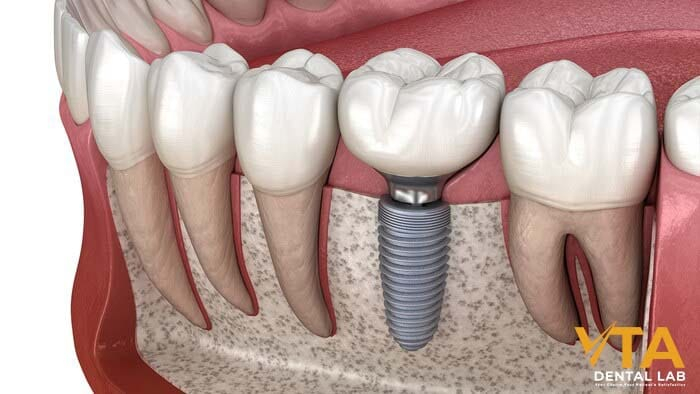
Dental implants are advanced replacements for missing teeth that provide a long-term solution
They provide a strong and stable foundation, mimicking the function and appearance of natural teeth. Over time, the implant fuses with the jawbone in a process called osseointegration, ensuring durability and longevity.
Dental implants are a popular option for people who have lost teeth due to injury, decay, or other dental issues because they preserve jawbone health, enhance oral function, and improve aesthetics.
What Are The Alternatives To Dental Implants?
Dental bridges
These use adjacent teeth to support a false tooth (pontic) in the gap created by a missing tooth. Bridges can be fixed or removable and do not require surgery like implants but rely on surrounding teeth for support.
Classic bridge
A classic bridge is a dental implant alternative for molar. This is a fixed dental restoration used to replace one or more missing teeth by anchoring an artificial tooth (or teeth) to the adjacent natural teeth.

Classic bridges are dental implant alternatives for molar
Abutment teeth are the natural teeth on either side of the gap that support the bridge. They are filed down and fitted with crowns to serve as anchors for the bridge. Pontic is the false tooth (or teeth) that fills the gap where the missing tooth used to be. The pontic is usually made of porcelain, metal, or a combination of materials and is connected to the crowns placed on the abutment teeth.
Maryland bridge
With these dental implant alternatives for molars, Maryland Bridge is a less invasive option where a false tooth is bonded to metal or porcelain wings, which are attached to the back of adjacent teeth. This option preserves the neighboring teeth but is typically used for front teeth due to its lower strength.
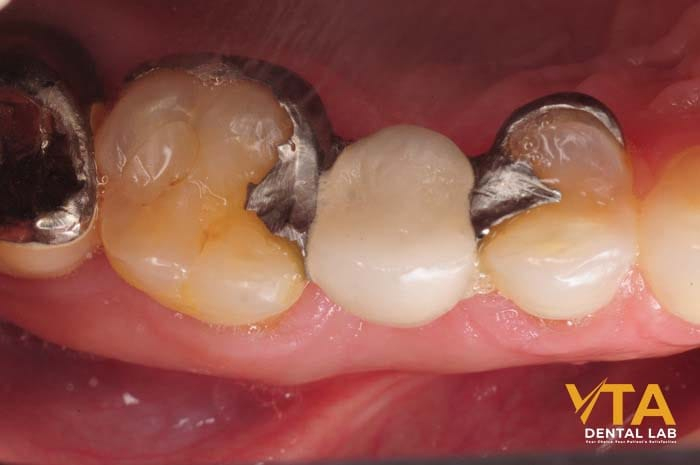
Dental implant alternatives for molar
Cantilever dental bridge
A cantilever bridge is a type of dental bridge used to replace a missing tooth when there is only one adjacent tooth available to support the restoration. The bridge is attached to only one natural tooth (abutment), and the false tooth (pontic) extends out from the single abutment tooth to fill the space left by the missing tooth.
Cantilever bridges are dental implant alternatives for molars. They are typically made from porcelain, metal, or a combination of both, like other types of bridges.
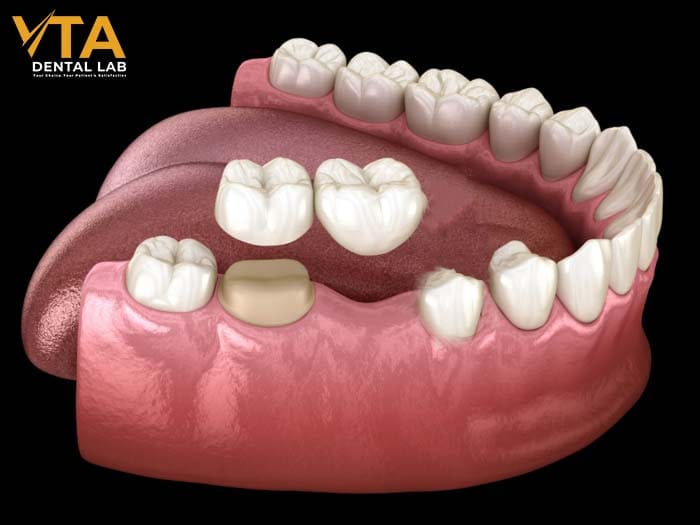
A cantilever dental bridge might be a good option for dental implant alternatives for molar
Pros and cons of dental bridges
Some advantages of dental bridges for dental implant alternatives for molars:
- Restores Function: Bridges help restore chewing and speaking abilities, making them an effective solution for missing teeth.
- Aesthetic Improvement: Bridges can fill gaps and improve the appearance of your smile, especially when made from tooth-colored materials like porcelain.
- Quick Procedure: Compared to dental implants, bridges can be placed relatively quickly (typically within two visits to the dentist).
- Prevents Teeth Shifting: Bridges prevent the remaining teeth from drifting out of position, which can occur after tooth loss.
- Non-Surgical Option: Unlike dental implants, bridges do not require surgery, making them less invasive.
- Long-Lasting: With proper care, dental bridges can last 10-15 years or longer.
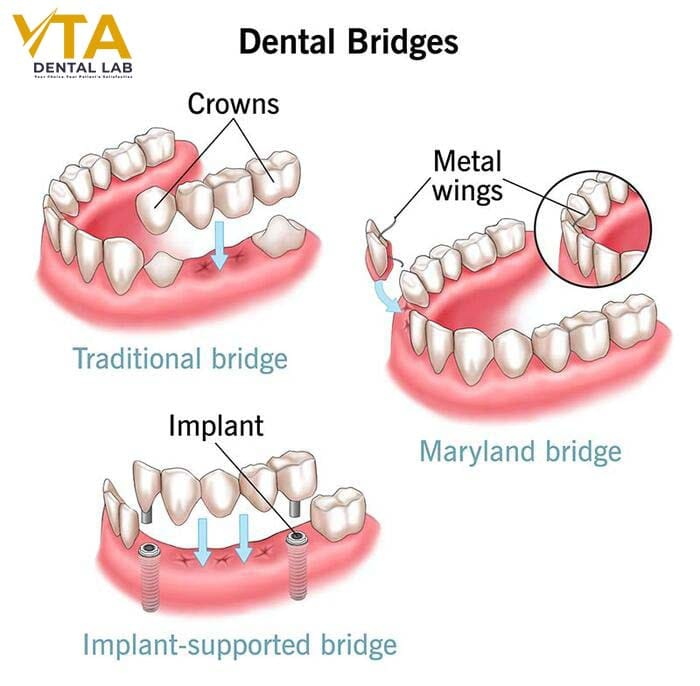
Dental bridges help the patient chew and bite easily
However, they also have disadvantages:
- Affects Adjacent Teeth: To support the bridge, the adjacent healthy teeth (abutments) need to be filed down and covered with crowns, which can weaken them over time.
- Bone Loss: Unlike dental implants, bridges do not prevent jawbone deterioration since they don’t replace the tooth root.
- Durability Concerns: Bridges, especially cantilever and resin-bonded bridges, may not be as durable as implants, particularly in areas with heavy biting pressure.
- Requires Maintenance: Good oral hygiene is essential to avoid decay or gum disease around the abutment teeth, as bridges can create areas where food particles can get trapped.
Dental bridges are an effective option for many patients, but the decision between a bridge and other dental implant alternatives for molar depends on individual needs, oral health, and budget.
Dentures
There are several types of dentures designed to replace missing teeth, and they vary based on the extent of tooth loss and the needs of the patient. The main types include:
Full dentures
Complete dentures (full dentures) are used when all the teeth in either the upper or lower jaw (or both) are missing. They consist of a full set of artificial teeth and are typically made from acrylic or porcelain attached to a gum-colored base.
- Conventional Complete Dentures: Placed after any remaining teeth are removed and the gums have healed, typically after a few months.
- Immediate Complete Dentures: Made in advance and can be placed immediately after tooth extraction. They may require adjustments after healing.

Full dentures fit comfortably over the patient’s gums
Partial dentures
Partial dentures are used when some natural teeth remain. They consist of artificial teeth attached to a gum-colored base and are often held in place by metal or plastic clasps that fit around the remaining natural teeth.
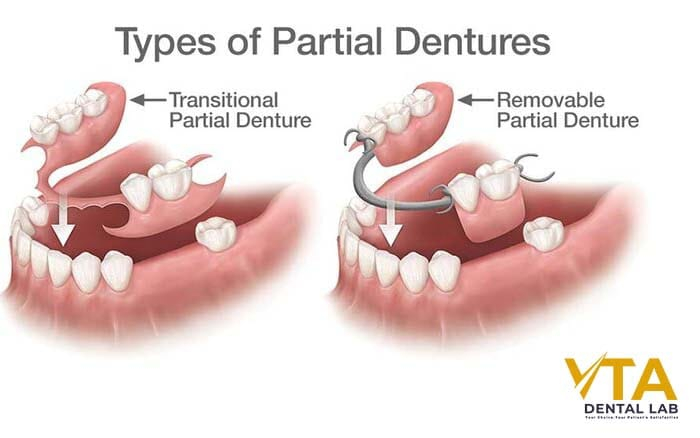
Partial dentures can quite literally bridge the gap
Implant-Supported Dentures
These dentures are anchored to dental implants surgically placed into the jawbone, providing greater stability and function. They can be full or partial dentures, depending on the extent of tooth loss.
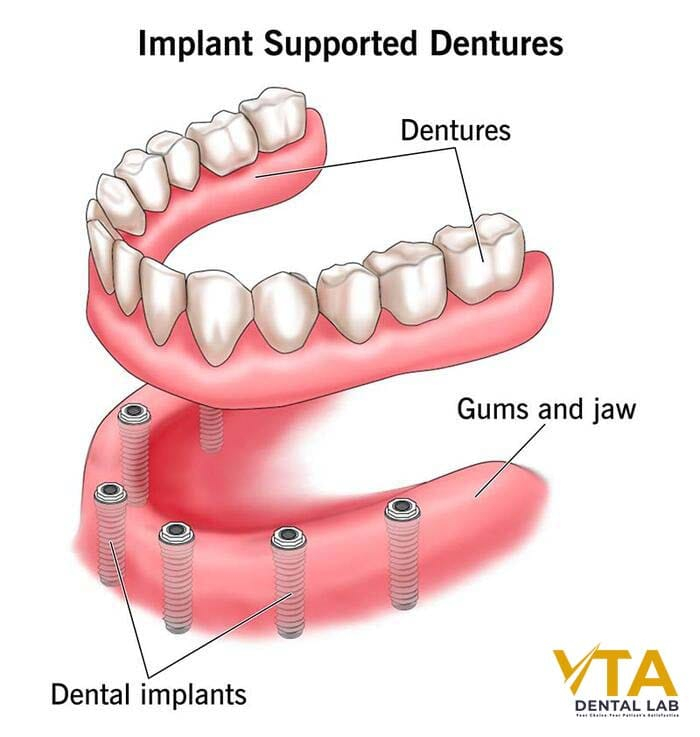
Implant-Supported Dentures
Pros and Cons of Dentures
There are some benefits to dentures as dental implant alternatives for molar:
- Affordable: Dentures are generally more affordable than dental implants, especially when replacing a full set of teeth.
- Non-Invasive: Dentures are non-surgical procedures, making them suitable for patients who want to avoid invasive procedures like implants.
- Restores Appearance: Dentures can improve the appearance of a smile by replacing missing teeth, and enhancing facial structure and aesthetics.
- Quick Solution: Dentures can be made and fitted relatively quickly, providing a fast solution for those who need tooth replacement.
- Easily Removable: Dentures are removable, which makes cleaning them easier and allows for adjustments if needed.
- Improved Function: They help restore the ability to chew food and speak clearly, especially if many or all teeth are missing.
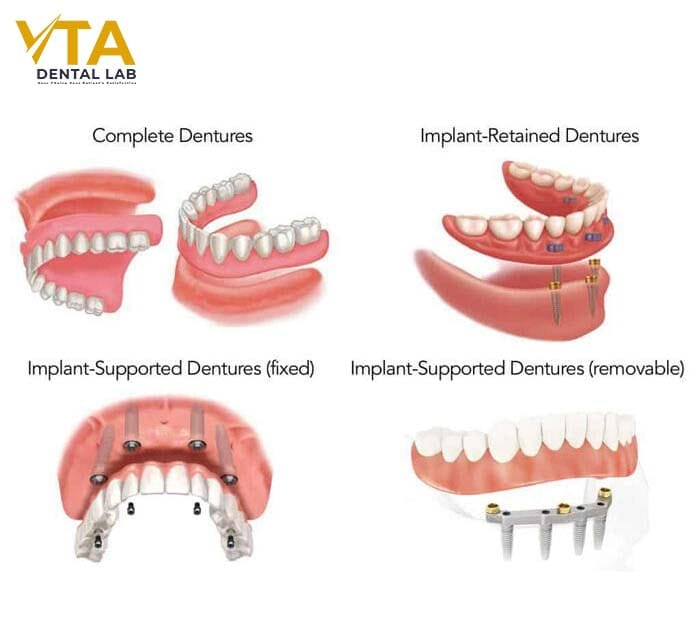
Removable dentures offer a versatile and affordable solution
Of course, there are disadvantages too:
- Less Stability: Dentures, especially traditional ones, can shift or move in the mouth, causing discomfort or difficulty when eating or speaking.
- Bone Loss: Since dentures do not replace the tooth roots, they do not prevent jawbone resorption, which can lead to bone loss over time.
- Risk of Damage: Dentures are susceptible to wear, cracking, or breaking if not handled properly, leading to additional repair or replacement costs.
Dental Implant Alternatives for Molars are based on the principle of prevention: Treating gum disease
Gum disease (periodontal disease) has a significant impact on overall oral health. If left untreated, the disease can continue to worsen, such as enamel deterioration, tooth decay, and possibly tooth loss. In addition, when considering the various alternatives to dental implants, we see that treating and preventing gum disease plays an important role in restoring oral health and preventing tooth loss.
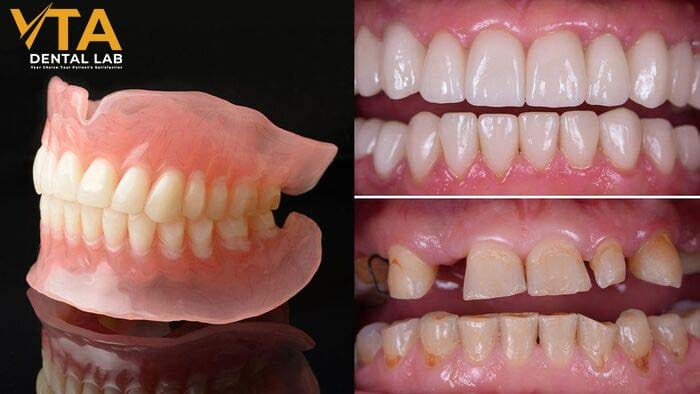
Addressing gum disease can maintain a solid foundation for other restorative treatments
Treatments for gum disease may include:
- Proper oral hygiene: This will prevent harmful bacteria from growing rapidly.
- Scaling and root planing: Your dentist uses a dental cleaning kit to remove tartar, plaque, and bacteria from your teeth
- Periodontal surgery: Dental surgery may be necessary when gum disease gets worse. The procedure involves accessing the gum and underlying bone to remove infected tissue and reshape the gums. The goal is to reduce pocket depth and create a healthier mouth.
- Gum Grafting: Gum grafting is a suitable solution for patients with receding gums due to gum disease. The surgical procedure involves taking tissue from other areas such as the roof of the mouth and grafting it to the affected gum.
- Gum grafting helps to restore gum tissue quickly, improve gum condition, and protect exposed tooth roots.
Take away
Choosing the right dental implant alternatives for molars can significantly impact your oral health and confidence. From bridges to dentures, understanding each option allows you to find a solution that fits your needs and lifestyle. Consult your dentist to explore the best alternatives tailored for you.
On the other hand, your practice’s reputation is based on the quality of your patients’ smiles and the ability to eat almost anything they want with ease. To do that, you need to choose a professional dental laboratory that provides quality restorations on time.
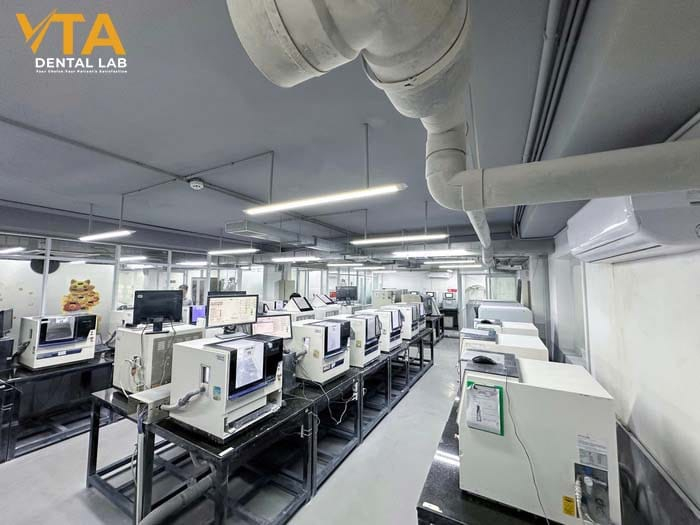
VTA Dental Lab is one of the best dental labs in the USA
VTA Dental Lab is a leading provider of high-quality dental solutions, dedicated to enhancing smiles through precision and innovation. Our lab is committed to meeting high industry standards, ensuring that every dental implant alternative for molars is crafted precious to support both patient comfort and dentist satisfaction.
Choose VTA Dental Lab for reliable, beautiful results that bring confidence back to every smile. To get more information and our current offers, visit the website now!